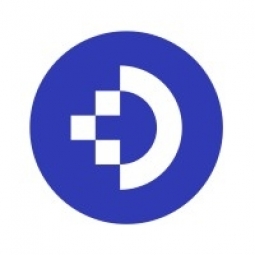下载PDF
German Red Cross - Ulm
技术
- 应用基础设施与中间件 - 数据交换与集成
- 分析与建模 - 过程分析
适用行业
- 医疗保健和医院
适用功能
- 商业运营
- 人力资源
用例
- 过程控制与优化
服务
- 系统集成
- 软件设计与工程服务
挑战
德国乌尔姆的德国红十字会面临着文件管理方面的重大挑战。该组织提供广泛的服务,包括紧急救援、家庭护理、捐助者管理和会计,处理大量文件。每年,大约有 65,000 份文件需要安全存储。这些文件被收集在活页夹中,并放在各个员工办公室的架子上。较旧的文件存放在地下室的防火柜中。然而,由于该组织的收入在过去五年中几乎翻了一番,导致记录数量增加,空间变得越来越紧张。搜索旧文件特别困难,需要员工翻遍地下室,甚至爬上梯子才能找到某些记录。此外,处理发票的流程效率低下,每张发票都要打印多份副本并单独归档。
关于客户
德国红十字会总部位于德国乌尔姆,是一家知名的慈善组织,提供紧急医疗服务(包括紧急救援和医疗/血液运输)、急救培训和灾难保护以及流动家庭护理服务、残疾人交通、无家可归者收容所、食品储藏室和二手商店。该组织在总部拥有 200 多名员工,并通过捐款获得 17,500 名成员的支持。该组织拥有现代化的 IT 基础设施,包括 Secure Office、消防和救援服务的系统解决方案以及支持其不同服务领域的会计程序。2012 年,他们选择了 DocuWare 文档管理系统来帮助管理大量文档。
解决方案
2012 年夏天,德国红十字会选择了一个中央数字档案馆。他们选择了文档管理系统 DocuWare 来帮助他们更有效地管理文档。该系统分两个阶段实施。自 2012 年 10 月以来,其会计、救援和家庭护理部门以及人力资源部的 12 名员工开始使用该解决方案。使用现有程序创建的文档在打印的同时自动编入索引并存储在 DocuWare 中。授权员工可以访问中央文档池。工作人员无需改变他们熟悉的工作流程,系统可以立即无缝运行。该组织还添加了一台新扫描仪来帮助完成数字化过程。
运营影响
数量效益
相关案例.

Case Study
Hospital Inventory Management
The hospital supply chain team is responsible for ensuring that the right medical supplies are readily available to clinicians when and where needed, and to do so in the most efficient manner possible. However, many of the systems and processes in use at the cancer center for supply chain management were not best suited to support these goals. Barcoding technology, a commonly used method for inventory management of medical supplies, is labor intensive, time consuming, does not provide real-time visibility into inventory levels and can be prone to error. Consequently, the lack of accurate and real-time visibility into inventory levels across multiple supply rooms in multiple hospital facilities creates additional inefficiency in the system causing over-ordering, hoarding, and wasted supplies. Other sources of waste and cost were also identified as candidates for improvement. Existing systems and processes did not provide adequate security for high-cost inventory within the hospital, which was another driver of cost. A lack of visibility into expiration dates for supplies resulted in supplies being wasted due to past expiry dates. Storage of supplies was also a key consideration given the location of the cancer center’s facilities in a dense urban setting, where space is always at a premium. In order to address the challenges outlined above, the hospital sought a solution that would provide real-time inventory information with high levels of accuracy, reduce the level of manual effort required and enable data driven decision making to ensure that the right supplies were readily available to clinicians in the right location at the right time.

Case Study
Gas Pipeline Monitoring System for Hospitals
This system integrator focuses on providing centralized gas pipeline monitoring systems for hospitals. The service they provide makes it possible for hospitals to reduce both maintenance and labor costs. Since hospitals may not have an existing network suitable for this type of system, GPRS communication provides an easy and ready-to-use solution for remote, distributed monitoring systems System Requirements - GPRS communication - Seamless connection with SCADA software - Simple, front-end control capability - Expandable I/O channels - Combine AI, DI, and DO channels

Case Study
Driving Digital Transformations for Vitro Diagnostic Medical Devices
Diagnostic devices play a vital role in helping to improve healthcare delivery. In fact, an estimated 60 percent of the world’s medical decisions are made with support from in vitrodiagnostics (IVD) solutions, such as those provided by Roche Diagnostics, an industry leader. As the demand for medical diagnostic services grows rapidly in hospitals and clinics across China, so does the market for IVD solutions. In addition, the typically high cost of these diagnostic devices means that comprehensive post-sales services are needed. Wanteed to improve three portions of thr IVD:1. Remotely monitor and manage IVD devices as fixed assets.2. Optimizing device availability with predictive maintenance.3. Recommending the best IVD solution for a customer’s needs.

Case Study
HaemoCloud Global Blood Management System
1) Deliver a connected digital product system to protect and increase the differentiated value of Haemonetics blood and plasma solutions. 2) Improve patient outcomes by increasing the efficiency of blood supply flows. 3) Navigate and satisfy a complex web of global regulatory compliance requirements. 4) Reduce costly and labor-intensive maintenance procedures.

Case Study
Harnessing real-time data to give a holistic picture of patient health
Every day, vast quantities of data are collected about patients as they pass through health service organizations—from operational data such as treatment history and medications to physiological data captured by medical devices. The insights hidden within this treasure trove of data can be used to support more personalized treatments, more accurate diagnosis and more advanced preparative care. But since the information is generated faster than most organizations can consume it, unlocking the power of this big data can be a struggle. This type of predictive approach not only improves patient care—it also helps to reduce costs, because in the healthcare industry, prevention is almost always more cost-effective than treatment. However, collecting, analyzing and presenting these data-streams in a way that clinicians can easily understand can pose a significant technical challenge.






